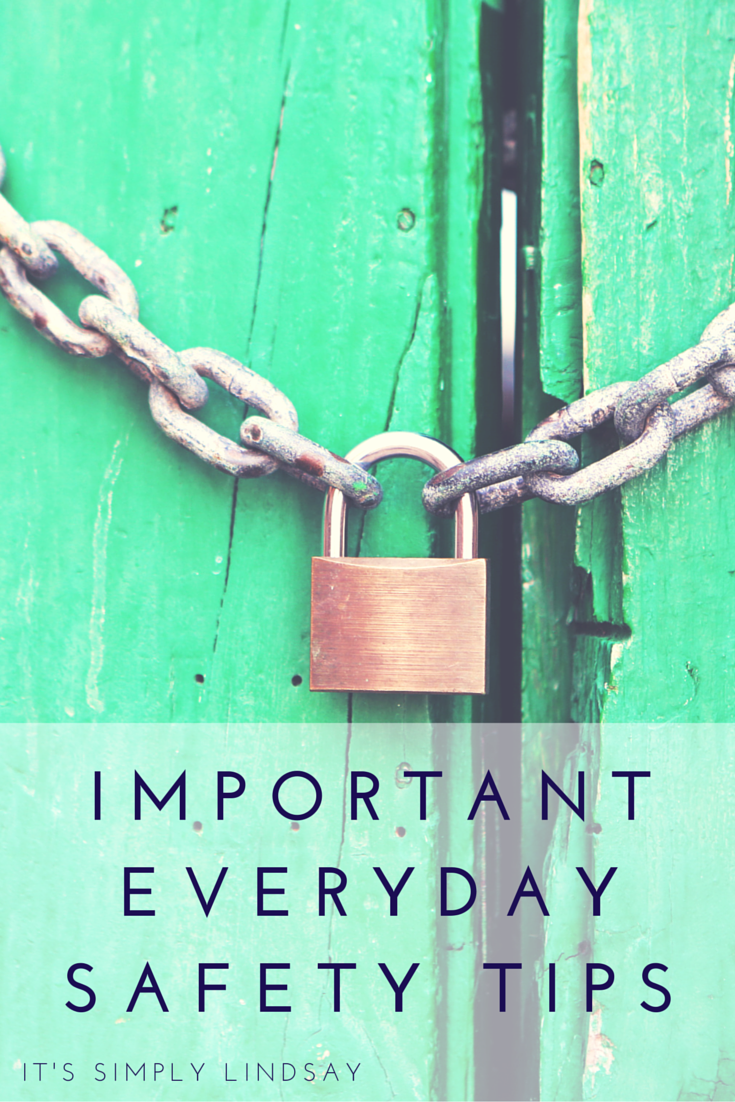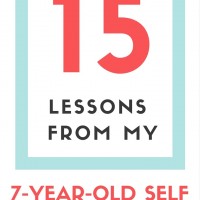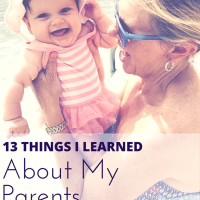
When I was young, my mom really hit the whole ‘stranger danger’ thing really hard, so much so that I’m still scared of being kidnapped and play various dangerous scenarios in my head to come up with plans of action. Totally normal, right? I remember actually role playing stranger danger situations with my mom and sister, and I always knew never to answer the door if my mom wasn’t home. My mom would go over all different situations we could be in, and maybe this is the reason I’m still somewhat paranoid, but I’m so thankful to have this extra little suspicious edge.
When my parents were first married, my mom fought off an attacker who attempted to assault her during the day in their home. The attacker, posing as a flower delivery man, had a gun and bag full of supplies, including duct tape. My mom’s ability to think, act, fight, and flee without thinking probably saved her life. Her bravery and mental strength made me question how I would instinctively act in a dangerous situation.
Important Everyday Safety Tips
I’ve always wanted to learn more about how to protect myself, but it wasn’t until I had my daughter that I sprang into action. I sometimes lay in bed and think about what I would do if someone broke in the house- what was the best course of action? Instead of coming up with my own solutions to my hypotheticals, I reached out to my police department and consulted a police officer friend. To my surprise, not only did I receive a prompt email response, but the responding officer also offered to meet in person at my home for a walk-through and to assess the layout and safety of it. (Thank you Ofc. Jeffrey Runge of the Villa Park Police Department.)
I live in a safe Chicago suburb and am surrounded by other safe Chicago suburbs. Then why have I been hearing about so many attempted and successful home invasions in the area? Officer Runge went over the best ways to protect yourself and your home, which is basically an overview of general safety tips that we all may know but do not necessarily think about or abide by all the time. I urge you to review these tips with your friends, family, and kids and put them to practice every day.
Keeping Your Home Safe
Often, people overlook the simple things that keep their homes safe. The officers I spoke to have attended training sessions with convicted burglars who talked about what they would look for when choosing homes to invade and what would stop them. These criminals stated that generally they’re looking for easy targets, meaning nobody is home, no alarm systems are present, and there are no dogs- basically no interference for a clean crime. Consider the following:
- Alarm system: if you do not have an alarm system, get one! If you have one, make sure it’s working, you use it daily and nightly, and make sure it’s loud. Proudly display your alarm system sticker and sign around the outside of your home.
- Sensors on windows: so you have an alarm system, great- but do you also have sensors on the windows? It is an added expense, but what good is it to have your doors censored if a criminal sneaks or breaks through an uncensored window?
- Lock windows: check that all windows are locked, including basement and upstairs.
- Dead bolts: do you double lock your doors every time you leave the house and every time you enter the house? Probably not. Make this an every time habit, like putting on your seatbelt. I don’t know why this always seemed inconvenient and unnecessary to me, but I started doing it and it take about an extra 5 seconds.
- Close blinds when leaving your house: criminals report that they do not want to waste their time breaking into a home that isn’t worth it. If they can see into your home, they can assess your assets and get a feel for the layout of your house. Always close your blinds behind locked windows when you leave your house.
- Dogs: criminals also report that along with alarm systems, dogs are a huge deterrent for burglaries. If you do not have a dog, you can get a recording of a barking dog if you hear someone on your property or knocking on your door.
Many times burglars will look for homes that appear vacant, most likely during the day when people are at work and there are no cars in the driveway. The criminal may knock on your door or ring the bell to see if someone is home; if there is no answer or no dogs barking, that’s a good indication of an empty house. It may be a good idea if you are home and hear someone at the door to make noise, put the TV on, get your phone out and ready to dial 9-1-1, or play the barking recording (if you do not have a dog).
Protecting Yourself in a Home Invasion:
There is no one-size-fits-all answer for how to protect yourself and your family in the event of a home invasion; each case is very situational. However, there are reliable tips to follow in any circumstance:
- Lock yourself in a room: if you are sleeping during a home invasion, lock yourself in your room, or if you have kids, immediately go to their room and lock the door. If you’re able to, put up any barricades, such as a dresser, against the door.
- Call 911 immediately: make sure to have your cell phone or landline, and call the police right away. This is your best chance at the most favorable outcome.
- Tell them you called 911: even if you haven’t called because you don’t have a phone, yell that you have already called 911 and that they are on their way.
- Own a gun? If you own a gun, hopefully that means you took the time to educate yourself on how to properly store, recover, and use it safely. If you’re able, grab your gun with your phone, lock yourself in your room or your kids’ room, barricade something against the door if possible, yell that you’ve called the police, and be calm, pointing your gun at the door if you hear the intruder.
- Plan an escape route: I remember learning this in grammar school and doing this with my family in the event of a fire- plan an escape route and practice it. The same applies for a potential home invasion. Have an escape route in various parts of your house whether you’re alone, living with friends, or family. Review these escape routes periodically and practice them, as silly as it may seem. If your escape route involves escaping out your bedroom window, then you better make sure the window opens, you can get yourself through the window, and have a clear way to get down.
Protect Yourself in Any Situation
Self -defense class and practice!
One of the officers I spoke to discussed the value of his rigorous police training and the muscle memory derived from exercises and drills. When you practice something over and over, such as a sport or instrument, you’re building muscle memory so that after a while, your body acts before you think. I can sit down at the piano without any music and my fingers know where to go without thinking, thanks to the hours of practice growing up. The same goes for self-defense.
Taking a self-defense class is a great start towards self-protection, but if you take one class, or even a series of classes in a year, and never practice it again, chances are when you need to use those skills, they will be lost. To protect yourself, you have to act quickly and with confidence. Take self-defense classes with family members or friends and make sure your instructor writes down or gives information about the moves you learn so you can always review and practice on your own. These moves should become second nature so you could act confidently without giving it a second thought.
Call 911
As with home invasions, the best chance you have to protect yourself is to call 911. Even if you are unable to talk, get the police on the line and try to keep the line open.
Have mental strength
This may be easier said than done, but Officer Runge stressed the importance of having mental strength in potentially dangerous situations. You cannot fight or have the best chance if you breakdown mentally. Keep a clear head and know that you can pull through.
Alert thinking
Wherever you are, always be aware of your surroundings. It’s always best to not go anywhere alone- yes, even as an adult. You’re an easier target if you’re alone no matter how old you are. Do not think that because you’re walking in your neighborhood during that daytime that nothing can happen to you; that’s not to say that you need to be paranoid all the time, but you should keep your head up, know your surroundings, and be alert to anything or anyone suspicious.
Be prepared to react
Trust your instinct; if something feels off, it’s better to react instantly and be wrong then to not act because you feel timid or embarrassed and end up in a dangerous situation. React by calling the police, running away, screaming for attention, and seeking out other people for help.
Lock doors immediately
When you get into your house or car, the first thing you should do is lock (or double lock) your doors. An attacker can easily follow you into your home if he or she sees you enter alone. Do you enter your house through the garage? Promptly close the garage door and lock the door into your house immediately.
Fight for virtue, give into wallets
This was great advice from Officer Runge- when you find yourself in a situation where an attacker wants your wallet, easily give into this request. Make it as easy for them as possible to get your wallet, which can include throwing it to them so they don’t approach you. If this is all the attacker is after, you can easily call the police, cancel your credit cards, and call your insurance company.
When you’re in a situation where the attacker wants more than to steal your possession, fight as fiercely as you can- do not make their intended crime easy. Fight, yell, kick, scream, go for the eyes and other vulnerable body parts, and assess the situation to make the best decisions. The more difficult you can make it for your attacker and the more attention you can draw to yourself the better.
Kubaton and pepper spray
There is a device that can fit on your key ring called a Kubaton that is highly effective for close-distance self-defense. I got mine on Amazon; then you can find a class or watch videos how to use it correctly so you can learn how to inflict the most amount of pain while using the device. You can also get pepper spray for your keychain.
While these tips might seem pretty general, often the most basic rules are overlooked and can save your life or protect you in various situations. I hope you review this post with your family and friends until these practices become second nature. What do you do to stay safe?














